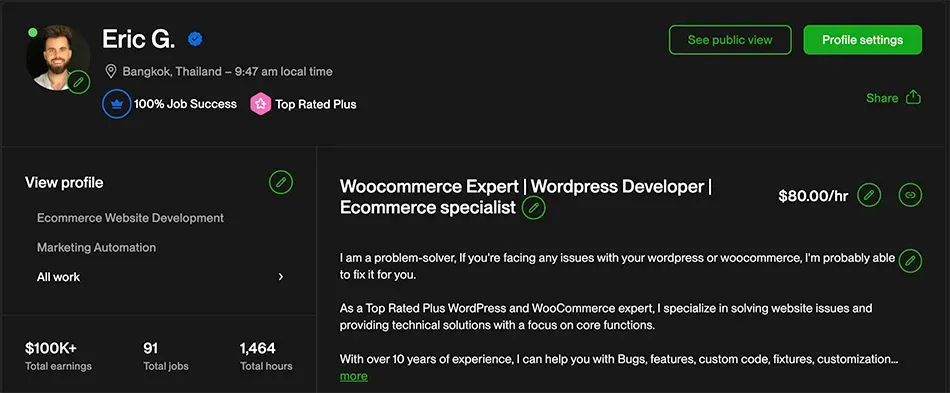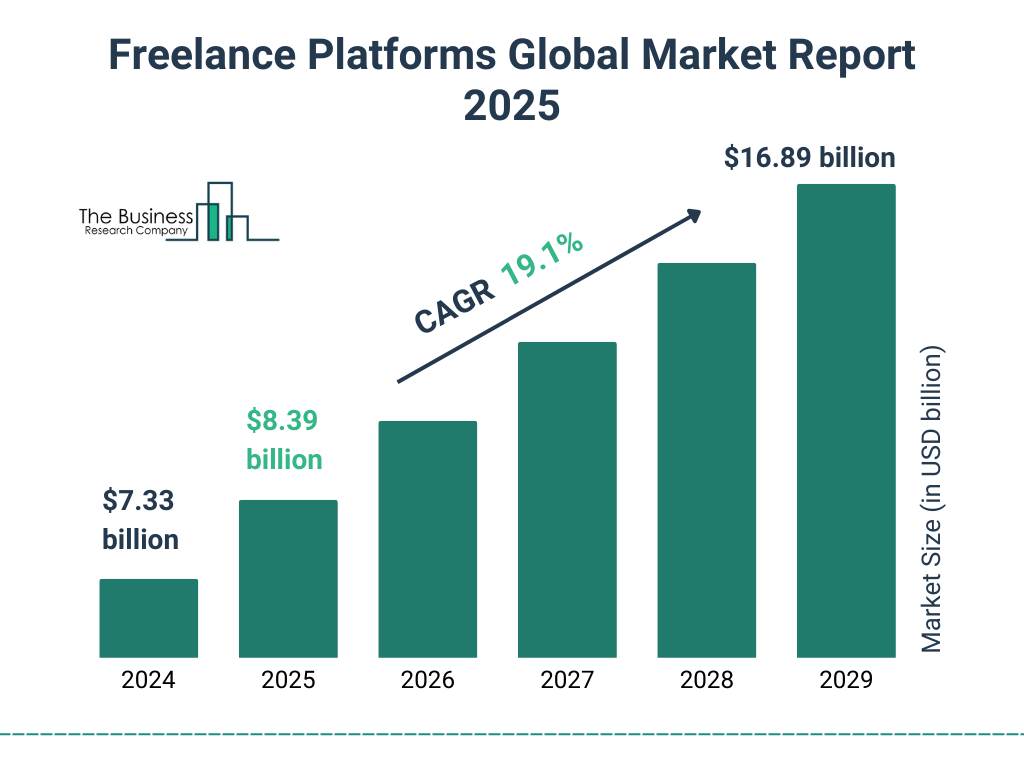The Hidden Struggles of Transitioning from Freelancer to Ecommerce Entrepreneur
The platform that once provided steady income has become a rat race of competing for connects and battling against AI-equipped newcomers and global competition willing to work for far less.

The Morning That Changed Everything
It's 8:30 AM on a Wednesday. Usually, I'd be unwinding with Squad Busters on my phone after my morning espresso. But today feels different. The weight of transitioning from selling my time to selling products has pushed me far beyond my comfort zone, and I finally found the courage to share this story.
The Freelancer's Golden Handcuffs
After years of successful freelancing on Upwork, building ecommerce websites for clients worldwide, I've hit a crossroads. The platform that once provided steady income has become a rat race of competing for connects and battling against AI-equipped newcomers and global competition willing to work for far less.

The decision to leave Upwork by January 2025 wasn't made lightly. Despite my successful track record and stable income, the writing was on the wall: adapt or become obsolete.
Why Leave a Successful Freelance Career?
The Professional Breaking Points
Two major professional factors pushed me toward this transition:
- Time Limitation: The harsh reality of having only 24 hours a day to sell became increasingly apparent. No matter how efficiently I worked, there was a hard ceiling on my potential earnings.
- Skill Evolution: The opportunity to grow beyond technical implementation into business ownership presented itself. In today's rapidly evolving digital landscape, staying static means falling behind.

The Personal Catalysts
The emotional aspects of this transition run deeper than just business logic:
- The Breadcrumb Effect: Watching clients achieve massive success with the websites I built while I collected my fixed fee became increasingly frustrating. The disconnect between value created and compensation received grew harder to ignore.
- Lifestyle Aspirations: My dream lifestyle requires breaking free from the time-for-money trap. The math simply doesn't add up with traditional freelancing.
The Pattern Recognition Phenomenon
After five years and over 20 major clients, a pattern emerged. I could predict with surprising accuracy which ecommerce ventures would succeed or fail. This insight became both a blessing and a curse:
- A blessing because it validated my market understanding
- A curse because it highlighted the opportunity cost of not applying this knowledge to my own venture
The Current State of Freelancing: A Critical Analysis
The freelance marketplace is undergoing a dramatic transformation:
- AI Integration: Tools that once required expertise are becoming accessible to everyone
- Global Competition: The playing field has expanded, making it harder to compete on price
- Barrier to Entry: The technical knowledge threshold keeps dropping
- Market Saturation: Quality work alone no longer guarantees success

Sources: https://www.thebusinessresearchcompany.com/report/freelance-platforms-global-market-report
The Fear Factor: Unpacking the Anxiety
The stress of this transition stems from several sources:
The Identity Crisis
Moving from a service provider to a business owner requires a fundamental shift in mindset. It's not just about technical skills anymore, it's about becoming a complete entrepreneur.
The Financial Uncertainty
Trading stable income for potential future gains triggers primal fears about security and survival.
The Skill Gap
Mastering new areas like:
- Product development
- Marketing strategy
- Supply chain management
- Customer service at scale
Looking Forward: The Strategic Pivot
Despite the challenges, this transition represents an opportunity to:
- Build Scalable Systems: Create processes that generate income without direct time investment
- Leverage Technical Expertise: Use deep industry knowledge to create competitive advantages
- Control the Outcome: Take full responsibility for business success or failure
- Create Long-term Value: Build an asset rather than just earning an income
The Reality Check
The freelance landscape is evolving rapidly. The democratization of technology and the rise of AI tools means that technical skills alone won't sustain a premium position in the market indefinitely. This transition isn't just about wanting more, it's about surviving and thriving in an evolving digital economy.
Moving Forward: Action Steps
To manage the stress and fear while making this transition, I'm:
- Setting realistic timelines and milestones
- Investing in learning new skills
- Building a support discord for and with other entrepreneurs
- Documenting the journey to help others facing similar challenges
Final Thoughts
This transition represents more than just a change in business model. It's a complete paradigm shift in how I view work, value, and personal growth. While the stress and fear are real, they're also indicators that I'm pushing beyond my comfort zone into new territory with greater potential.
The future of freelancing may be uncertain, but one thing is clear: adaptation isn't just an option, it's a necessity for survival in the digital age.
